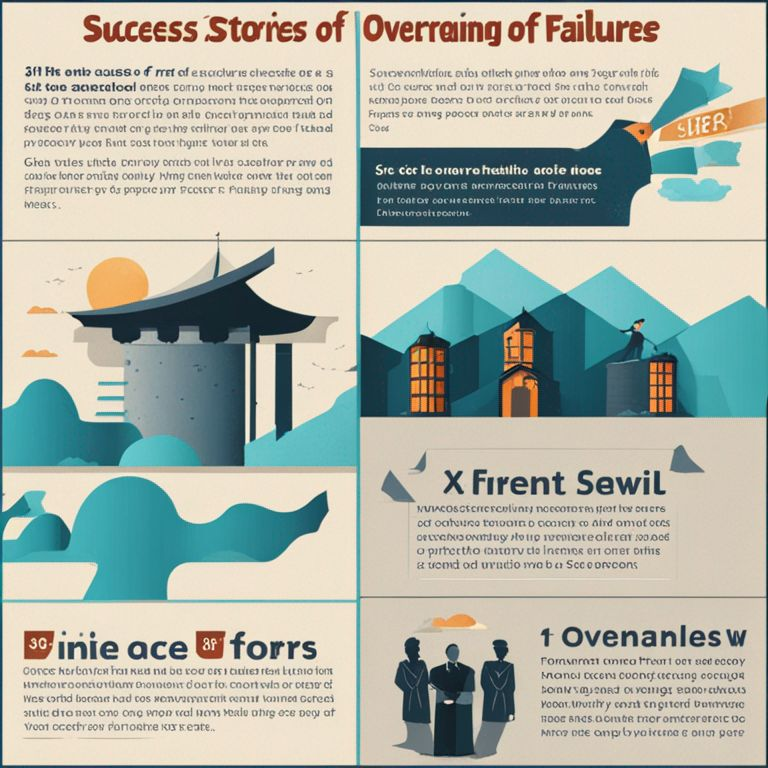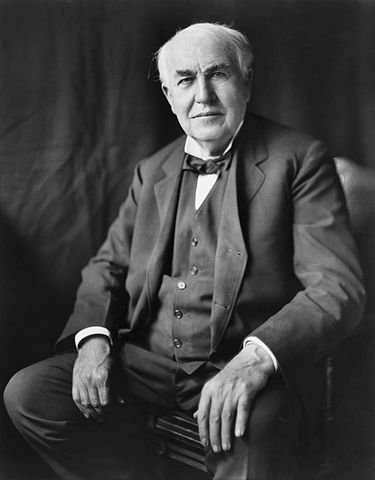In the pursuit of our goals and aspirations, we often encounter a formidable opponent: the fear of failure. Fear of failure is a common yet powerful emotion. This insidious fear has the power to hold us back, stifle our potential, and prevent us from reaching our true and full potential.

Fear of failure is an emotional response triggered by the anticipation of unfavorable outcomes, leading to hesitation, avoidance, or even procrastination. It can be rooted in various factors, such as past experiences, societal pressure, and self-doubt.
Let's delve into the depths of this phenomenon, exploring its origins and consequences, provides real-life examples and explore effective strategies to overcome it, and in the process, empowering to conquer this invisible barrier and to embrace success with unwavering confidence.

Causes & Consequences

Causes:
The fear of failure is rooted in the dread of not meeting expectations, disappointing oneself and others, and the potential consequences that accompany it.
Perfectionism, harsh criticism, fear of judgment, the imposter syndrome and unresolved traumas and negative reinforcement in childhood can also play a significant role in developing the fear of failure.
It is right to say, not one or two, several factors contribute to the development of fear of failure. Some are negative at their core. Some are positive but can be turned into negative ones if not treated properly, though.
Impact of Past Experiences
Negative experiences from the past, especially instances of previous failures, can leave a lasting impact on our psyche. These experiences shape our perception and attitude towards failure, making us wary of attempting new ventures.External Validation and Social Pressure
In a world where success is often measured by external validation, the fear of failure intensifies. The constant pressure to meet societal norms and expectations can lead to an overwhelming fear of falling short.Perfectionism: The Relentless Pursuit of Flawlessness
Perfectionism, while often seen as a virtue, can be a significant contributor to the fear of failure. The relentless pursuit of flawlessness creates unrealistic standards, making failure seem more daunting.Low Self-Esteem: The Negative Self-Image
A negative self-image and low self-esteem can erode our self-confidence, making us more susceptible to the fear of failure. The belief that we are not worthy of success amplifies the fear.Overestimating Consequences: Catastrophic Thinking
Catastrophic thinking involves magnifying the potential consequences of failure. This distorted perception can lead us to believe that even a minor setback will result in a catastrophic outcome.Comparison and Self-Doubt
Constantly comparing ourselves to others and doubting our abilities can fuel the fear of failure. The fear of not measuring up to our peers creates self-doubt and inhibits us from taking necessary risks.
Consequences:
Constant fear of failure can leave a dire impact on a human's personality which can lead him to be a total failure in any and all fields of life and many psychological issues, as well.
The Psychological Impact
The fear of failure can lead to a cascade of negative emotions, such as anxiety, self-doubt, and low self-esteem. Individuals may become trapped in a cycle of overthinking and procrastination, hindering their ability to take risks and pursue their goals.Stifling Personal Growth
When the fear of failure takes hold, it can prevent individuals from stepping out of their comfort zones. This hinders personal growth and limits the acquisition of new skills and experiences that are crucial for self-improvement.

Overcoming Fear of Failure

In the journey of life, challenges and failures are inevitable. However, it's our perspective and mindset that can make all the difference. Cultivating a positive mindset is a powerful tool that not only helps us overcome the fear of failure but also propels us towards success.
Following tips are proven helpful for many people in order to overcome the fear of failure and get a successful life. Remember, though, failures are part of the life which can also lead to successes only if you derive the right lessons from them.
Practice Self-Compassion and Acceptance
Embracing self-compassion involves treating ourselves with the same kindness and understanding that we would offer to a friend. Accept that failure is a natural part of growth and learning. By recognizing and accepting the fear, individuals can start to confront it in a healthy manner. Instead of self-criticism, choose self-encouragement.Embrace a Growth Mindset
A growth mindset focuses on the belief that abilities and intelligence can be developed over time through dedication and hard work. Embrace challenges as opportunities for growth, and view failures as stepping stones toward success.Set Realistic and Achievable Goals
Setting unattainable goals can set us up for failure. Instead, break down larger goals into smaller, achievable steps. Celebrate each milestone, reinforcing a positive outlook.Surround Yourself with Positivity
Surrounding yourself with positive influences, whether through supportive friends, mentors, or inspiring media, can significantly impact your mindset. Positivity breeds positivity.Practice Mindfulness and Gratitude
Mindfulness involves being fully present in the moment, while gratitude focuses on appreciating the positives in your life. These practices can shift your focus away from fear and toward a more optimistic outlook.Challenge Negative Thoughts
Learn to recognize and challenge negative thought patterns. Ask yourself if your fears are based on facts or assumptions. Often, our worst-case scenarios are unlikely to come true.Celebrate Your Efforts
Acknowledge and celebrate your efforts, regardless of the outcome. By recognizing your hard work, you reinforce a positive attitude towards your endeavors.Learn from Setbacks and Failures
Rather than viewing failure as a negative outcome, reframing it as a learning opportunity can be transformative. Failures are rich with lessons. Analyze what went wrong, identify areas for improvement, and apply these insights to future endeavors. Every setback is an opportunity for growth.Practice Self-Care
Taking care of your physical, emotional, and mental well-being is crucial for maintaining a positive mindset. Engage in activities that bring you joy and relaxation.Visualize Success
Visualization can be a powerful tool in overcoming fear. Imagine yourself succeeding, feeling the emotions and benefits of achieving your goals. This can help rewire your brain for positivity.

Success Stories of Overcoming Fear of Failure

Thomas Edison: Embracing Failure as a Stepping Stone

Fear of failure often stems from viewing mistakes as setbacks. However, successful individuals like Thomas Edison, the inventor of the light bulb, reframed failure as a necessary step towards success.
Edison famously said, "I have not failed. I've just found 10,000 ways that won't work."
His resilience and ability to view failures as valuable lessons propelled him to achieve remarkable inventions.
J.K. Rowling: Learning from Setbacks

Before becoming a literary sensation with the "Harry Potter" series, J.K. Rowling faced numerous rejections from publishers. She battled financial hardships and personal struggles but never gave up on her dream of becoming a successful writer. Rowling's perseverance and unwavering belief in her abilities eventually paid off, making her one of the most beloved and successful authors of all time.Her journey exemplifies the importance of learning from setbacks. She transformed her fear of failure into a driving force for honing her craft, ultimately achieving unparalleled success.
Chris Gardner: Cultivating Resilience - Turning Adversity into Advantage

From Homelessness to Stardom. Chris Gardner's life story, depicted in the movie "The Pursuit of Happyness," showcases the transformative power of resilience. Despite facing homelessness and adversity, Gardner remained determined to provide a better life for his son. Through unwavering persistence, he transitioned from homelessness to a successful career on Wall Street.
Nick Vujicic: Overcoming Physical Challenges

In a world often consumed by challenges and self-doubt, Nick Vujicic's life shines as a radiant example of courage and determination. His journey from a young boy born without limbs to a global motivational icon underscores the importance of self-acceptance, resilience, and the transformative power of a positive mindset.
Nick's message of embracing uniqueness and overcoming adversity continues to inspire individuals to break free from limitations and live life to its fullest.
Michael Jordan: From Cut to Champion

Michael Jordan, widely regarded as one of the greatest basketball players in history, faced his fear of failure head-on. As a teenager, he was cut from his high school basketball team. Instead of letting the setback discourage him, Jordan used it as motivation to work harder and improve his skills. His determination and relentless pursuit of success eventually led him to win multiple NBA championships and become an iconic figure in sports history.

Keep in mind, fear of failure is a common human emotion and not a sign of weakness. It is a natural response to uncertainty and challenges. Even, in some cases, fear of failure can serve as a motivator to push individuals to work harder and achieve their goals. However, excessive fear can be detrimental.
Even though, it might be challenging to completely eliminate fear, individuals can learn to manage and cope with it effectively. Past failures or traumas can contribute to the development of fear of failure. Addressing and processing these experiences can be helpful in overcoming the fear.
In conclusion, real-life examples of individuals like Thomas Edison, Michael Jordan, J.K. Rowling, Chris Gardner and Nick Vujicic, and many others which we haven't mentioned in this post, showcase that fear of failure is surmountable. Their stories remind us that setbacks are stepping stones towards greatness. So, take the first step towards conquering your fear of failure and embrace the endless possibilities that await you.

Image Sources